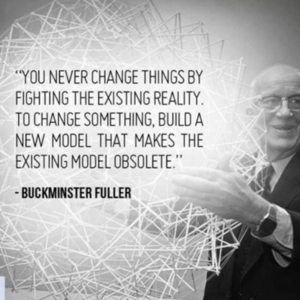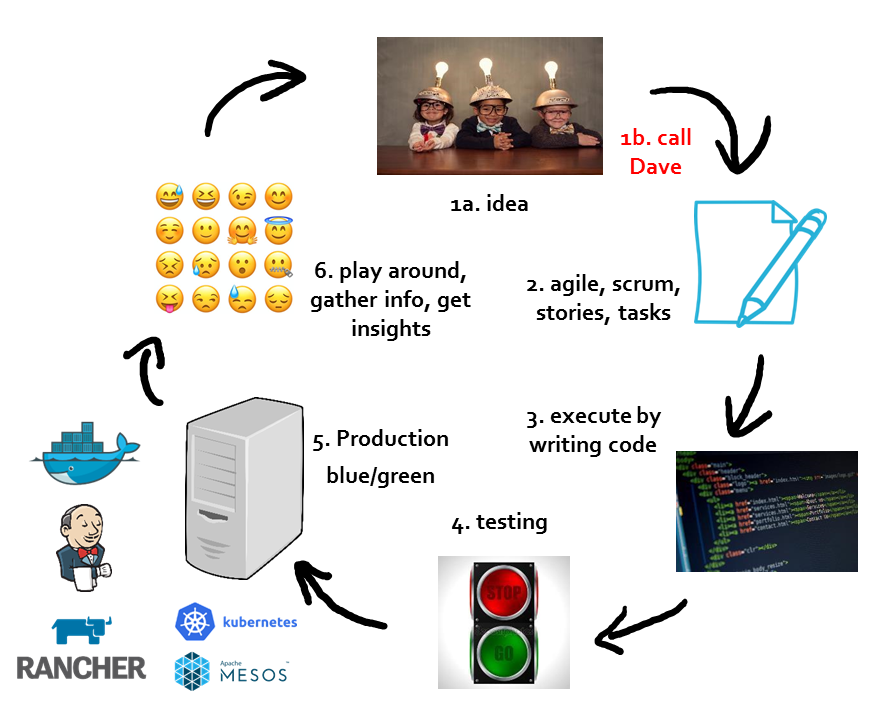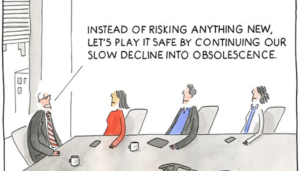A few weeks ago I wrote a blog post about how IT departments became irrelevant. In the time that passed I’ve met more and more IT managers who are having a serious challenge to stay relevant for their org. Once they were Kings, now they are getting obsolete if they do not adapt. This article describes where the change for them mostly is coming from, and it will give 7 tips on how traditional infrastructure people can deal with this.
In 2000 Dave and me worked in a large general hospital. We were both IT infrastructure guys. Almost all of the innovation took place on the infra layer. Hypervisors, virtual networks, VPN’s, WiFi, software packaging, virtual desktops, databases, patient data interfaces.. We were Kings!
After 10 years I moved to another hospital and continued my work. Dave decided to quit his job, take a very long sabbatical and think things over. During his trip around the world he realized software was becoming more and more important. He decided to join the change and become a software developer. He wanted to stay relevant. And he was right, just a few years later public cloud and new technologies like containers (Docker) changed everything.

Infra engineer Dave is reborn as Software developer and becomes the new King
I.e. take a look at Netflix, AirBNB, Uber, bunq, Hellogbye, Picnic. They offer services people are really interested in. Every established order that has not listened to it’s customers will get into trouble because one day start-ups like this will disrupt their market completely.
These services can be built because of the democratization of IT. People who have great ideas – often born out of frustration – have a way to make them become reality by using public cloud with it’s pay-per-use model for all of these powerful technologies. Instead of changing an existing system – which is very hard – it’s better to build a new one.

What these new companies have in common is that they are high-tech companies and their employees are (mostly) developers. They focus directly on the realization of the ideas. They do not break their heads over IT stuff that has become commodity. I.e. replacing backup systems, upgrading email servers, build email archives, install server patches, data center maintenance, hypervisor upgrades and so on.
So who do the start-up people with new ideas call? Not the infrastructure guy. They need the software developer. Dave is the King of IT, again.

Change is the only constant, so individuals, institutions, and businesses must be Built to Adapt. To stay relevant change should be expected, embraced and incorporated continuously through development and innovation. Focus on business software development, not on the infrastructure commodity stuff everyone uses.
So is this the end for us infra guys? Do we all have to become developers? Nope, there are lots of things developers don’t want or can do. Here are some idea’s:
1. Networking
Connect everything from everywhere: authentication, data exchange, firewalls, loadbalancers, ..
2. Company wide security for both structured and unstructured data
Things like the GDPR regulation is serious business, companies really need people who help them to understand and do the right things.
3. Take care of a consistent end user experience for all IT services
User happiness and productivity, very important!
4. User adoption of new technology
I.e. for Office 365: lot’s of work to do here! Just throwing new technology at users will make them very unhappy and the investment.
5. Create the company’s IT roadmap together with your C-level
Understand WHY of your company, come up with cool things, keep the overview, manage stakeholders, and help your company to stay relevant.
6. Manage and support the infrastructure
Docker, Rancher, Kubernetes, Mesos, all things developers use but do not manage. This is the new infrastructure. And your audience are developers. Scary shit.
7. Service desk & billing
Make these services lean and very user friendly, this is really important because you HAVE to keep customers HAPPY so they stick with you.
The good news is: there is still enough to do! You just have to stretch yourself and come out of your comfort zone.
The bad news for some: you have to stretch yourself and come out of your comfort zone. One thing is for sure, staying in there will definitely make you obsolete.

Time for contemplation. Maybe take a sabbatical, like Dave did. And find help if you’re stuck. But don’t stay away as long as he did, Dave will have changed everything when you come back.

